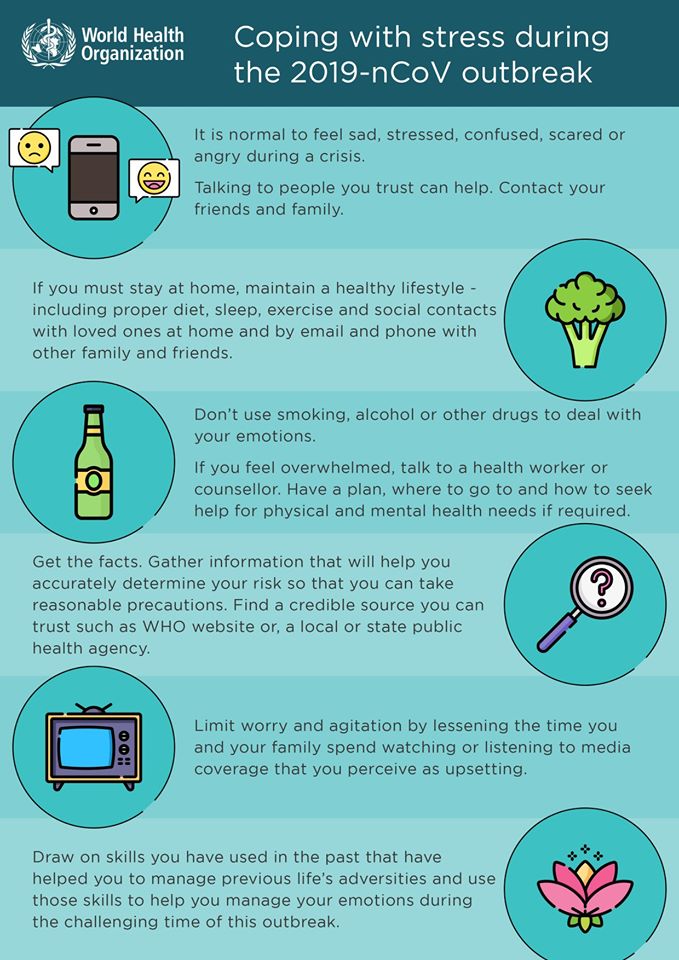Can you boost your immune system against COVID-19?
Share
Many Australians are anxious and stressed about the coronavirus, COVID-19. There have been reports of panic-buying at the supermarket. People have been donning face masks when they have no symptoms. You can’t make a cup of tea at work without someone bringing up ‘coronavirus’.
You might feel a little powerless, but there are a few things you can do to help strengthen your immune system and help protect yourself from many types of viruses. And none of them involve a hazmat suit.
Do vitamin pills protect you from the coronavirus?
No. It’s much better to get all the nutrients you need for a strong immune system from a balanced diet. And with a couple of exceptions — folic acid for pregnant women, for example — most healthy people do not need to use expensive supplements.
Social media has been infiltrated by claims that megadoses of vitamin supplements, such as vitamin C, can treat the flu-like symptoms of COVID-19 but there is no evidence to back this up. Consuming high doses of certain supplements, such as vitamin A and vitamin D, can, be toxic.
Vitamin C is water-soluble, which means it’s not lethal but if you consume more than your body can store, it’s simply removed via your urine. So, excess vitamin C goes down the toilet.
While there’s no vaccine for COVID-19 yet, there is a vaccine for another global killer, the flu. Look for updates on this season’s influenza vaccine and book in a jab when it’s available.

Get more sleep
Sleep is important for your immune system. Research shows that sleep-deprived people can have suppressed immunity, meaning that they’re more at risk of catching viruses.
If you feel worried or you are anxious (about COVID-19, for example), you’re more at risk of sleep problems such as insomnia. And if you’re sleep-deprived, you’re more likely to be anxious.
So, if you’re reading this on your phone in bed right now, put the phone down — looking at a bright screen in the evening can disrupt your sleep.
Clean your phone
As well as keeping you up at night, your phone may also transfer germs. According to a new study, some viruses (including human coronaviruses that came before COVID-19) can remain infectious on surfaces for up to 9 days. So you should disinfect the ‘portable petri dish‘ that is your mobile phone regularly with a cleaning product that is 70% ethanol.
Washing your hands regularly with plenty of soap and water for at least 20 seconds — or using an alcohol-based hand rub if the soap isn’t available — is the best way to protect yourself from COVID-19.
Should you wear a face mask?
If you’re feeling anxious you might be considering wearing a face mask for protection. But face masks are not recommended for the general population. Only people who have symptoms of COVID-19 or who are in close contact with a person with suspected (or confirmed) COVID-19 need to wear a disposable (surgical) face mask.
Where to go for help if you’re feeling worried?
Fortunately, if you are feeling stressed or worried about the coronavirus (COVID-19), help is available. Speak to your GP or contact any of these organisations:
- Beyond Blue offers mental-health counseling 24 hours a day on 1300 22 4636. You can also speak to someone via online chat (3pm to 12am, 7 days a week).
- Children and young adults (up to age 25) can call Kids Helpline on 1800 55 1800 to speak with a counselor, 24 hours a day. Online chat is also available 24/7.
- Call Lifeline on 13 11 14 to speak with a trained mental health supporter, 24 hours a day. Online chat is available between 7pm and midnight (AEST), 7 days a week. You can also text 0477 13 11 14 between 6pm and midnight (AEST), 7 days a week.












